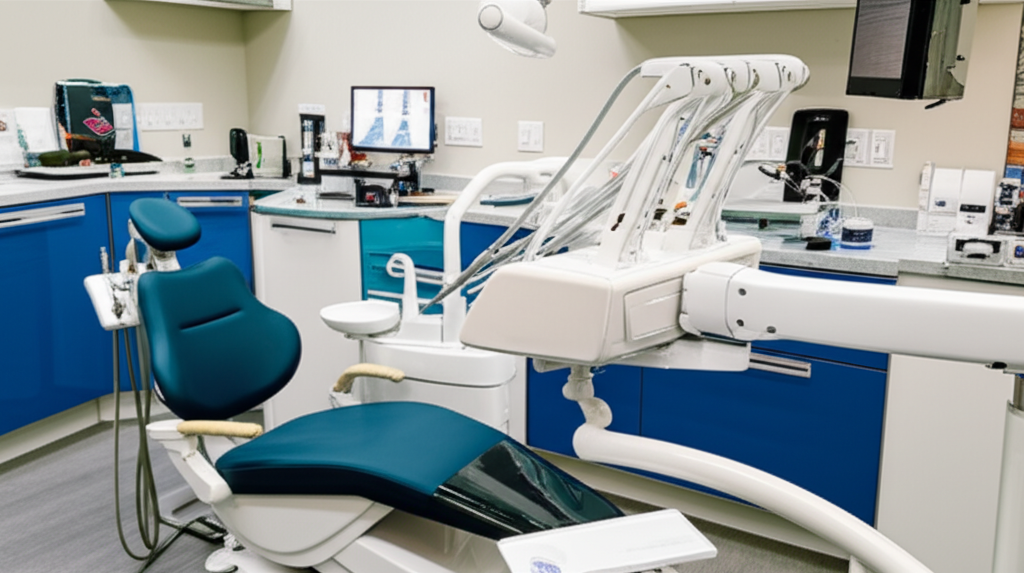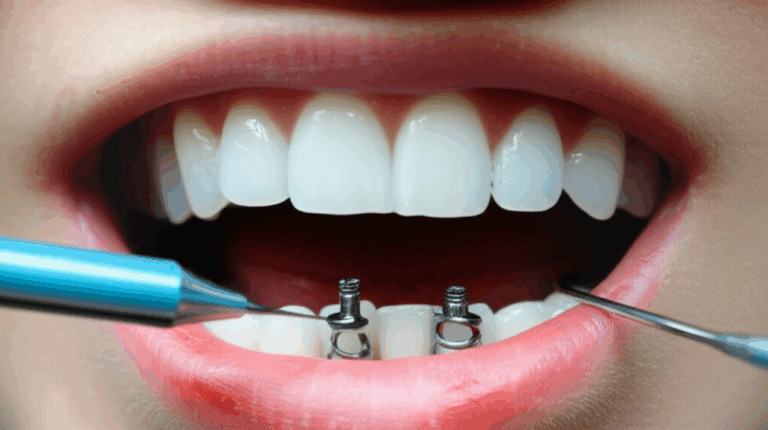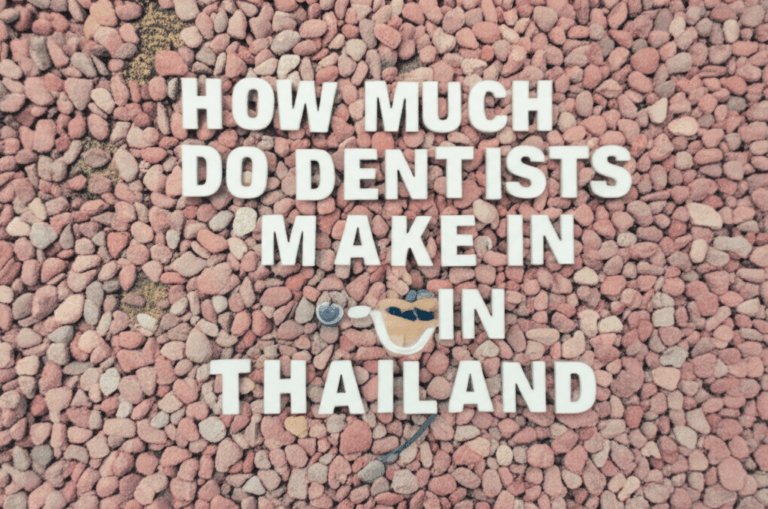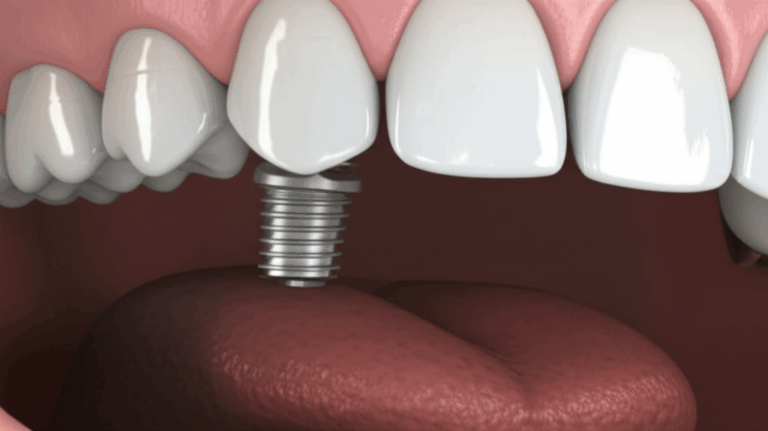
Is Opening a Dental Clinic Profitable?
A Friendly Dentist’s Guide to Costs, Income, Risks, and Rewards
The Relatable Hook: Why You’re Asking, and Why You’re Not Alone
You’ve probably wondered: Is opening a dental clinic really worth it? Maybe you’re a dentist ready to become your own boss, or someone thinking about investing in healthcare. Either way, it’s a big step. Feeling nervous and excited is normal—starting any new business is scary because you see both the good and the bad that can happen.
You want real answers, not just guesses or rumors you hear at meetings or on websites. How much will it really cost? How long before you actually make money? How do other clinics keep going even when things get tricky? If this feels like a lot, you’re not alone—doing research just means you care about getting it right.
Let’s walk through it together, honestly and simply, so when you finish reading you understand the real numbers and feel ready to make your own decision.
In This Article
Here’s a quick map of what you’ll find below:
- The Nuts and Bolts: Factors That Influence Profitability
- Counting the Cost: What You’ll Spend to Open a Dental Clinic
- How Money Flows In: Revenue and Revenue Streams Explained
- Crunching the Numbers: Typical Profit Margins and Real ROI
- Where Clinics Stumble: Common Challenges and How to Manage Them
- Making Profit Real: Strategies to Maximize Success
- Is It Profitable? A Straightforward Answer
- Key Takeaways: What Every Future Dental Owner Needs to Know
The Nuts and Bolts: Factors That Influence Profitability
Let’s start with the real question—What makes a dental clinic make money or not?
Think of a dental practice as a small team that needs many things to work well together.
Location and Demographics
Just like with buying a house, where you are matters a lot. If you open a clinic downtown, you get lots of people walking by and seeing your sign, but the rent is usually higher. In the suburbs, you may see more families who come back often, but there may be more other clinics nearby.
Knowing your neighbors—whether they are young workers, retired people, or lots of families—helps you decide what services and hours will keep your chairs full.
Service Offerings
Dental clinics aren’t all the same. Some just do the basics: cleanings, fillings, and check-ups. Others add things like cosmetic work, braces, implants, or emergency care.
Special treatments like implants or veneers often make more money but usually need special training, pricier tools, and good partners for making crowns or other parts.
Business Model
Will you work alone, with a group, or let a bigger company help run things? Each way changes your costs, your responsibilities, and how much you take home.
- Solo Practice: You’re in control, but you also do most of the work.
- Group Practice: You share costs and ideas with other dentists.
- DSO Model: A company helps manage business stuff, but you may give up some control and money.
Practice Management and Efficiency
Think of your clinics like a sports team. Smooth routines, clear jobs for everyone, and easy check-ins for patients mean you get more done and have less stress.
Happy workers, steady teams, and smart scheduling all help you make more money.
Marketing and Patient Acquisition
You can’t fill your schedule if no one knows you are there.
These days, having a good website, nice reviews, and local ads matters a lot. Whether you use online ads, mail, or join local events, getting new patients (and keeping them) always takes work—especially when you are just starting out.
Counting the Cost: What You’ll Spend to Open a Dental Clinic
Let’s talk about money. If you want your clinic to make money, you need to know how much you’ll spend before you see your first patient.
Real Estate: Leasehold Improvements vs. Purchase
Leasing a place usually means you pay less up front, but you pay rent every month. Fixing up the space—like putting in walls, wires, and pipes for dental equipment—can cost from $50,000 to $150,000 or more.
Buying a place gives you more control and you might own it someday, but you pay more at the start and fix things yourself.
Equipment and Technology
Dental tools are not cheap. Plan to spend $100,000 to $300,000 or more to get started:
- Dental Chairs and Units: Where your patients sit and get treatment.
- Digital X-ray Machines: For pictures of teeth and quicker checks.
- Sterilization Stations: For keeping everything clean and safe.
- Practice Management Software: To schedule patients and handle money and papers.
If you want new tech, like 3D scans, costs go up, but they can save time and help you stand out. Working with a good lab, like a digital dental lab, can make digital work easier.
Supplies and Inventory
You’ll need lots of basics—gloves, masks, cleaning stuff, etc. This can cost $10,000 to $30,000 or more just to stock up before opening.
Legal, Licensing, and Professional Fees
Getting your licenses, permits, insurance, and advice from a lawyer or accountant can cost $10,000–$30,000+.
Don’t forget rules from agencies like HIPAA and OSHA.
Marketing and Branding
Building a website, making signs, and getting your name known costs money. Most new clinics should plan on $20,000–$50,000+ for their first year, especially if they want new patients quickly.
Working Capital
Have extra money saved for salaries, bills, and insurance for a few months while building your patient list. A good rule is enough for 3–6 months of bills, which is about $50,000–$100,000.
Total Startup Cost Ranges
- Solo Practices: $350,000 – $500,000+
- Group Practices: $500,000 – $750,000+
- Super fancy clinics (with all new tech) might go over $1 million.
How Money Flows In: Revenue and Revenue Streams Explained
Now let’s talk about how a clinic makes money—that’s what most people care about.
The Bread and Butter: Patient Services
Every visit brings in cash.
- Fee-for-Service Models: You set your own prices; patients pay cash or with insurance.
- Insurance Reimbursements (PPOs): You take fixed, often lower prices, but may get more patients.
Many clinics do both, but your area may prefer one way.
Service Mix: General vs. Specialized Care
- General Dentistry: Cleanings, fillings, crowns, basic emergencies.
- Restorative and Cosmetic Dentistry: Implants, whitening, veneers—usually higher prices for each job.
- Emergency Services: Bring in quick cash, but need someone always ready.
- Pediatric, Ortho, or Surgery: Can charge more if people in your area want these.
Doing a lot of things can help with steady cash, but being really good at one thing can make you more efficient.
Patient Volume and Retention
Bringing in new people is important, but making sure they come back for checkups is even better.
A growing practice often gets 20–40 new patients a month and tries to keep 80–90% coming back.
Average Revenue Benchmarks
An established solo clinic might make $600,000 to $1 million+ a year in total sales. Group practices and specialists can do much more.
Crunching the Numbers: Typical Profit Margins and Real ROI
So, how much do you keep?
Net Profit Margins
Most dental clinics that run well make profits of 25% to 40% (before the owner’s pay).
That means for every $1,000 made, $250–$400 is real profit.
Real Example:
Here’s a simple picture:
- Total Revenue: $800,000
- Expenses (salaries, supplies, rent, ads, bills, insurance, taxes): $520,000
- Net Profit: $280,000 (35% margin)
From this, you pay yourself as the owner—often $180,000–$300,000+ depending on how much patient work you do.
Key Expense Categories
- Staff pay and benefits: 25–30% of income
- Rent: 5–7%
- Dental supplies and lab fees: 6–8%
- Marketing: 3–5% (could be more in the first year)
Having a good china dental lab or trustworthy dental lab partner helps keep costs steady and care quality up—helping your profits.
Breakeven Point & ROI
A new clinic usually starts making enough to cover costs in 1–3 years.
Long-term returns? Good dental clinics often beat other small businesses because patients need checkups again and again, and your practice gets more valuable with time.
Where Clinics Stumble: Common Challenges and How to Manage Them
Running a dental clinic isn’t always easy. Here are some common problems and how to handle them.
High Initial Investment & Debt
Starting a dental clinic costs a lot. Many dentists need loans, so it’s important to budget carefully. Shop around for lenders who know dental businesses.
Local Competition
You need to stand out. Before you open, check how many other clinics are nearby. Can you offer things they don’t, like longer hours or quick emergency care?
Staffing Woes
It can be hard to find and keep good people, from hygienists to receptionists. Pay well, treat your team right, and give them opportunities to learn.
Insurance Complications
Dealing with insurance companies can be tough. Late payments and denied claims hurt cash flow. It’s a good idea to hire someone with experience or hire a company to manage your billing.
Economic Ups and Downs
Dental care needs don’t go away, even if the economy is bad. But things like whitening and cosmetic work might slow down when people spend less.
Regulatory and Legal Risks
Keep up with rules from HIPAA and OSHA. Get good insurance for your business and ask a lawyer when you have questions. It’s worth it.
Making Profit Real: Strategies to Maximize Success
How do the best clinics succeed year after year?
Optimize Practice Management
Make your systems as simple as possible. Use easy-to-learn software, and keep your staff well trained. The smoother the patient visits, the more you can help each day.
Smart Marketing
Never forget to tell people about your clinic. Happy patients tell friends, but you should also use online ads and go to local events to get your name out there.
Diversify Services and Income Streams
Add treatments like implants or clear aligners if you have the know-how. Partners like a good crown and bridge lab help make sure your quality is high.
Watch Every Dollar
Try to save money by buying in bulk, comparing prices, and keeping track of your inventory. Small savings add up fast.
Embrace Technology
New tools like 3D imaging or teledentistry can make things quicker and easier for both you and your patients. Working with a modern 3D dental lab helps you offer top-notch results.
Track Performance
Keep an eye on numbers like new patients, returning patients, and how much money is coming in. Look over how you’re doing each month so you can fix problems early.
Build a Winning Team
Success depends on more than just the owner—it takes a great hygienist, assistant, office manager, and receptionist. Treat your staff right, and they’ll take care of your patients.
Is It Profitable? A Straightforward Answer
So, is opening a dental clinic worth it?
Yes—for most owners, it means good money, freedom, and building something valuable for your future.
With profits at 25–40%, a well-run clinic pays now and can be sold later when you retire.
But—it’s not easy money. You need a good plan, smart choices in services, great ads, and focus on happy patients. You’ll want advice from accountants, lawyers, and trusted business partners. And you’ll need good suppliers and a great dental lab.
Key Takeaways: What Every Future Dental Owner Needs to Know
Here’s what you should remember if you’re thinking about opening a dental clinic:
- Location and Demographics really matter for your success.
- Startup costs are high, but you can handle them with planning—budget $350,000–$700,000+.
- You can make good money, especially after a few years and with more services.
- Net profits for good practices are 25–40%.
- Success depends on smooth systems, happy patients, and a good team.
- There are real challenges—competition, insurance problems, rules, and debt—but you can manage them if you stay informed.
- Good marketing, repeat patients, and offering more services help you grow.
- Smart advice and partners are important. Don’t try to do it all by yourself!
Empower Your Journey:
Now you know the facts, the risks, and the way forward. It’s time for action. Make your business plan. Visit other clinics, talk to local owners, and connect with good dental labs or consultants. Whether you jump in now or wait, just remember: planning makes you confident.
If you want to learn more about the technical side, see how a china dental lab or dental ceramics lab can help you deliver great results.
Curious about dental implants? Read our guide on dental implant.
And most of all—ask questions, find mentors, and trust yourself. Dentistry is more than just a job. It’s about helping people—one smile at a time.
Frequently Asked Questions (FAQs)
Q: What is the average net income for a dental clinic owner?
A: Most owners of solo clinics take home between $180,000 and $300,000+ before taxes. If you own or work with specialists, it might be more.
Q: How long does it take for a new dental clinic to become profitable?
A: Most break even (cover their costs) in 1–3 years, depending on where they are, how much they spend to start, and how many patients they get.
Q: What are the biggest risks in dental practice ownership?
A: Lot of money needed at the beginning, tough competition, hiring and keeping staff, slow insurance payments, and rules you must follow.
Q: Can dental clinics weather economic downturns?
A: Dental care doesn’t drop as much as other businesses when the economy is bad, but things like cosmetic treatments might slow down for a while.
Your Next Step
Ready to take control of your future? Whether you’re starting your first clinic or growing bigger, being informed is your best investment.
Talk to your local dental group, chat with helpful consultants, and keep learning. With the right start, your clinic can do more than just stay open—it can grow.
And remember: every healthy clinic brings more than just profit—it brings brighter smiles to your whole community. That’s something worth working for.
Further Reading:
To learn more about dental technology, materials, or prosthetic options, check out our info on digital dental labs.
Good luck, and may your dental business bring healthy smiles and happy days for years to come!








